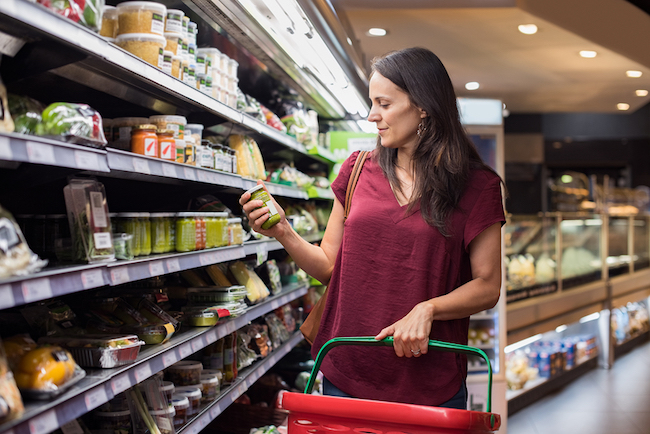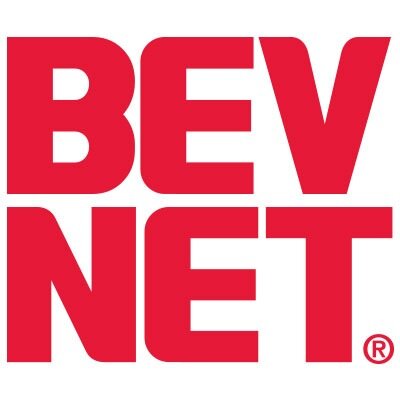
Grocery Shopping Trends Report highlights the Potential Opportunity for Brands and Unfortunate Truth About the Organic Seal
The 2019 U.S. Grocery Shopper Trends report from the Food Marketing Institute and the Hartman Group was just released, and these three findings really caught my attention.
1) ONLINE SHOPPING REMAINS VERY IMPORTANT, GROWTH SIGNS ARE MIXED
- 32% of shoppers are using online-only retailers at least occasionally.
- Online shoppers now see online as on par with the supermarket in meeting a number of key shopping needs. Also, they increasingly accept online for fresh categories, which was previously the distinctive domain of the brick-and-mortar store.
- Among Gen X (39-54), online shoppers grew by more than one-third over last year’s base.
- Reach among Millennials (23-38) has not grown in the last two years, suggesting that after Gen X (39-54) and Gen Z (18-22) catch up, the online user base may soon plateau.
2) ORGANIC CLAIMS CONTINUE TO BE LESS SOUGHT OUT
When purchasing food, product claims that shoppers are seeking:
33% – No artificial ingredients
32% – No preservatives
27% – No trans fats
27% – Not bioengineered
25% – Natural
19% – Certified organic
11% – Gluten-free
3) ETHICS AND SOCIAL IMPACT DO MATTER TO CONSUMERS
When deciding which retail shopping store is the most desirable, customer-facing attributes, such as low prices and high-quality fruits and vegetables, are still the most important. However, a substantial number of shoppers still believe that business practices, recycling/sustainability and community involvement carry significant weight.
Attributes that are “very important” in primary store selection:
46% – Open and honest business practices
24% – Store’s recycling and sustainability practices
20% – Community involvement
Out of frequent and occasional-use smartphone users, 20% of those people are using QR code scanning to learn about social responsibility or sustainability.
MY TAKE
Two key takeaways.
First, just as with last year’s report, the “organic” claim trails behind “natural”, “not bioengineered” and “no artificial ingredients”.
This continues to show that shoppers do not fully understand what organic means, resulting in millions, if not billions, of lost sales for our industry. As we move forward, organic stakeholders cannot dismiss the scandals that are plaguing our industry — fraudulent imported grains from abroad and organic dairy “factory farms” – and the long-term damage that these may do to the integrity of the organic seal.
That being said, shoppers did seek out the organic claim 19% of the time, up from the 2018 number of 14%.
Second, while the data presented in the report about the importance of ethics and social impact was in regard to retailers, it is reasonable to assume that this data would be comparable for when consumers decide to purchase organic products.
So, the question then becomes, how well are brands articulating their social and community involvement on their packaging or websites? And how much of the packaging design is dedicated to these initiatives?
According to a report from The Label Insight and the Food Marketing Institute:
– 75% of consumers say they’ll switch to a brand that provides more in-depth product information, beyond what’s provided on the physical label.
– 61% say they’re willing to pay more for products with in-depth product information.
This data proves the point that all product attributes, including social and environmental impact, will influence the behavior of shoppers.
Yet, after covering the organic industry for more than a decade, I believe that most brands fall short in communicating this story to consumers and do not get the credit or recognition they deserve.
This presents a real opportunity for incremental sales and new customers.
 |
With gratitude, 
Max Goldberg, Founder |
Quick Hits
* This Saturday at the NOFA-Massachusetts Summer Conference, Dave Chapman, Executive Director of the Real Organic Project, and Johanna Mirenda, Farm Policy Director at the Organic Trade Association, will be debating how well the USDA is doing its job and protecting the values of traditional organic agriculture.
* I do not know how anyone can defend the USDA’s allowance of hydroponics in organic — a complete violation of Section 6513 b-1 of the Organic Foods Production Act of 1990.
* Organic farmers in upstate New York are very concerned about the highway department spraying their land with chemicals.
* Thrive Market is testing how a guided shopping quiz could streamline consumers’ experience and boost sales.
* Organic Valley has reached its 100% renewable energy goal with the completion of three community solar projects.
* Visualizing the boom in the CBD beverage market.
* An organic farm has launched in New York City’s Lower East Side.
* This past weekend in Japan, the Organic Lifestyle Expo 2019 was held.
* SFO has become the first airport to ban plastic water bottle sales.
* Native Sun Natural Foods Market, an organic and natural grocery store chain in Florida, is closing its doors after 20 years of business.
* The Organic Farming Research Foundation and the Foundation for Food and Agriculture Research have awarded two grants that tackle soil health challenges.
* The bowls at Chipotle and Sweetgreen, which are supposed to be compostable, contain cancer-linked “forever chemicals”.
New Organic Products
SunSquares by Urban Remedy
With Urban Remedy having just entered the NYC market with its salads, snacks, juices and smoothies, the star of the show may very well be its SunSquares. Made with sunflower butter, raw cacao powder and coconut oil, it offers 4g of protein and contains only 7g of sugar for 2 squares. A must-purchase item.
Plantiful + CBD by Lifeway
Following the launch of Plantiful earlier this year – Lifeway’s line of probiotic plant-based beverages – the company has announced that it will be introducing Plantiful + CBD. This will be a CBD-infused drink that contains 10 vegan probiotics and a full spectrum CBD.
Mango-Flavored Sparkling Maple Tree Water by Asarasi
Building on its existing line of organic sparkling maple tree waters, Asarasi recently introduced a new mango flavor. From sustainably-sourced maple trees, this drink contains zero sugar and zero calories.
Want your product profiled here? Learn more
Weekly News Summaries


OpenTEAM™ is the World's First Open-Source Technology Ecosystem to Address Soil Health
Wolfe's Neck Center for Agriculture & the Environment in Maine just launched OpenTEAM, the first open-source technology ecosystem in the world to address soil health and mitigate climate change.

Leaked Report: Food Production Must Change to Save the World
By Robin McKie
A draft report from the Intergovernmental Panel on Climate Change states that the way the world produces food must change. Or the consequences will be dire.

'Origin of Livestock' Rule Needed to Maintain Organic Dairy Markets
This rule is so badly needed that governors are now calling on USDA Secretary Sonny Perdue to finalize the proposed rules.


California Working Toward Certifying “Almost Organic” Cannabis
By Alexander Lekhtman
The California Department of Food and Agriculture is developing a statewide “almost organic” cannabis certification standard, similar to the USDA organic label.
Prunes Are Being Rebranded as a Millennial Superfood
By Denitsa Tsekova and Olivia Rockeman
With a large export market to China drying up because of the trade war, prunes are being marketed to American consumers for their bone, muscle and heart benefits.

"Money-Bleeding" Brandless Hires New CEO, Changes Approach
By Biz Carson
With its investors growing frustrated with its "money-bleeding" operations, Brandless has hired a new CEO and is abandoning its $3 pricing strategy.


New Online Grocery Store is Entirely Plastic-Free
By Adele Peters
Rise Mrkt will ship staples like organic rice and lentils to your house in compostable containers.

Temple Turmeric Changes Hands Again
By Martín Caballero
Dunn's River Brands, which purchased Temple Turmeric in April 2018, has just sold a controlling interest in the company to Natur International Corp.

An Inside Look At How Monsanto, a PR Firm and a Reporter Give Readers A Warped View Of Science
By Paul D. Thacker
An important read about Monsanto's cozy relationship with Tamar Haspel, a Washington Post columnist who defended glyphosate and diet soda.
The material in this newsletter is copyrighted and may be reprinted by permission only. All requests must be in writing. Please use our contact form to request republication rights.
Newsletter Archive
Quick Hits
* This Saturday at the NOFA-Massachusetts Summer Conference, Dave Chapman, Executive Director of the Real Organic Project, and Johanna Mirenda, Farm Policy Director at the Organic Trade Association, will be debating how well the USDA is doing its job and protecting the values of traditional organic agriculture.
* I do not know how anyone can defend the USDA’s allowance of hydroponics in organic — a complete violation of Section 6513 b-1 of the Organic Foods Production Act of 1990.
* Organic farmers in upstate New York are very concerned about the highway department spraying their land with chemicals.
* Thrive Market is testing how a guided shopping quiz could streamline consumers’ experience and boost sales.
* Organic Valley has reached its 100% renewable energy goal with the completion of three community solar projects.
* Visualizing the boom in the CBD beverage market.
* An organic farm has launched in New York City’s Lower East Side.
* This past weekend in Japan, the Organic Lifestyle Expo 2019 was held.
* SFO has become the first airport to ban plastic water bottle sales.
* Native Sun Natural Foods Market, an organic and natural grocery store chain in Florida, is closing its doors after 20 years of business.
* The Organic Farming Research Foundation and the Foundation for Food and Agriculture Research have awarded two grants that tackle soil health challenges.
* The bowls at Chipotle and Sweetgreen, which are supposed to be compostable, contain cancer-linked “forever chemicals”.



